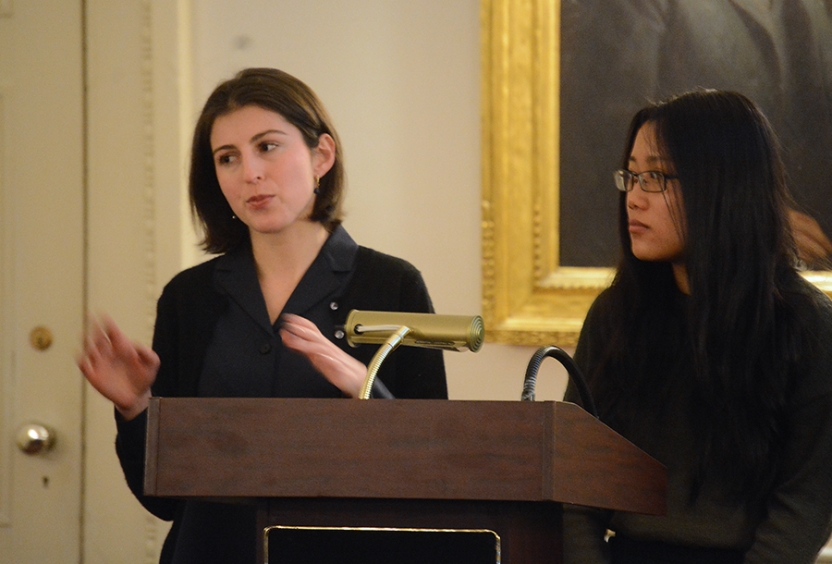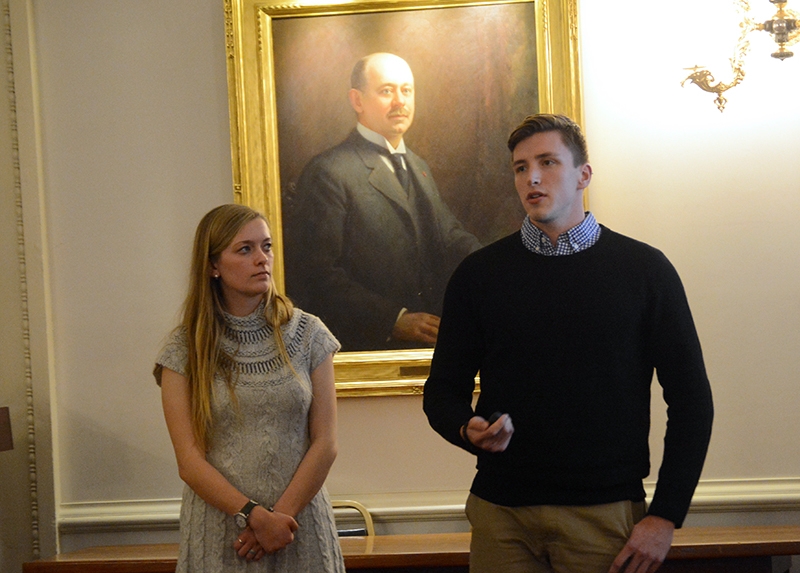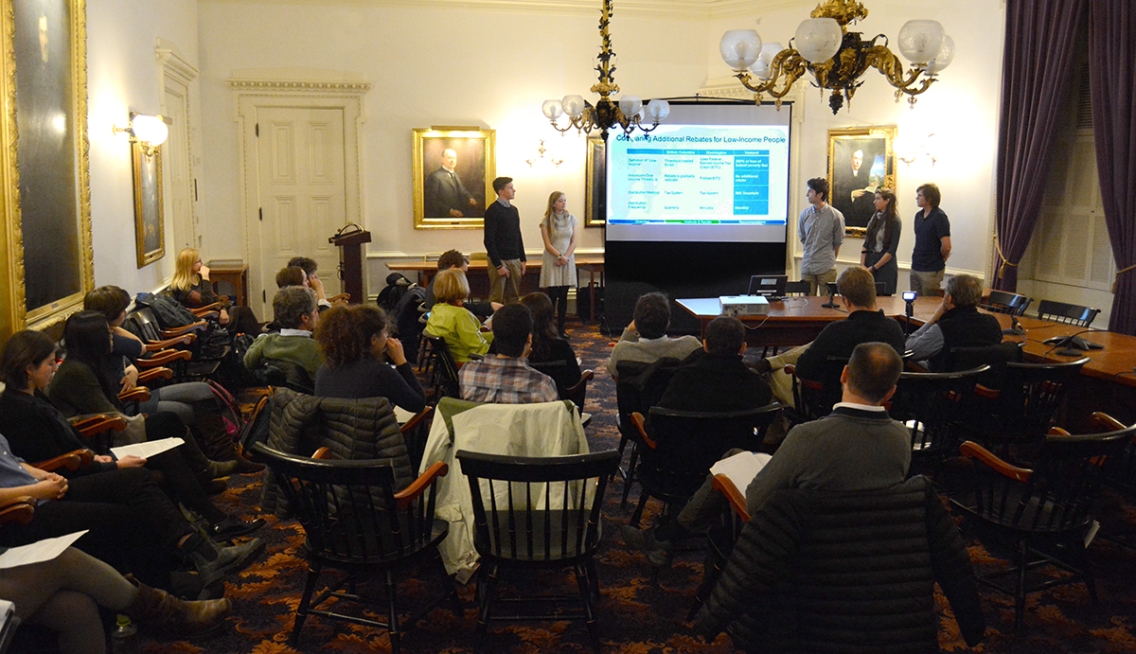Students Advise Lawmakers on Implications of Carbon Tax

MIDDLEBURY, Vt. – Ten Middlebury College seniors presented their findings about Vermont’s proposed carbon pollution tax to a gathering of lawmakers, environmentalists, and lobbyists at the State House in Montpelier on December 8.
The students in the Environmental Studies Senior Seminar (ENVS 0401) spent the semester reading, discussing, and researching how the proposed tax on carbon consumption would affect two specific groups in Vermont: farmers and low-income residents.
The state representatives who sponsored House Bill 395 and House Bill 412, Christopher Pearson (Prog.-Burlington) and Mary Sullivan (D-Burlington), respectively, attended the session in the State Capitol, along with officials from Vermont Department of Agriculture, Vermont Low Income Advocacy Council, Energy Independent Vermont Coalition, Vermont Natural Resources Council (VNRC), and Vermont Public Interest Research Group (VPIRG).
If approved at the 2016 session of the legislature and signed into law by the governor, the tax would be on heating and transportation fuels such as oil, natural gas, gasoline, propane, and coal.
The students who explored how a carbon pollution tax would affect the state’s farming community said the more than 7,000 farms in the Green Mountain State encompass about 1.2 million acres of land, or about 20 percent of the state’s total land mass. Because of the size of the agricultural sector and its “cultural importance for Vermont’s pastoral image,” the students said, the passage of a carbon pollution tax through the State Legislature will require support from the farming community.
“The proposed carbon pollution tax may make it more challenging for Vermonters to make a living in agriculture,” the Middlebury seniors pointed out.
The students interviewed a range of Vermont farmers from maple sugar producers to large dairy farmers to small organic vegetable growers. They found that conventional dairy farmers “will likely be the most impacted by the tax because their operations are both fuel intensive and they are often unable to pass along the cost” to consumers.
The group recommended exploring the option of giving special consideration to the agricultural sector via a longer timeline for phasing in the tax and creating incentives for farmers to improve their operations’ energy efficiency. The students also recommended the development of an “effective platform for farmers to voice their opinions and gain access to state support when transitioning to more effective energy technologies.”

The students who considered how the state’s low-income residents would be affected by the proposed tax on carbon assumed it would disproportionately affect low-income earners and were determined to find “the most effective, efficient, and equitable rebate distribution system that the state could implement.”
They studied British Columbia’s revenue-neutral carbon tax implemented in 2008 and carbon tax proposals pending in Washington state and Massachusetts. They interviewed Vermont state officials, economists, and advocates for low-income residents, and conducted a survey of more than 300 Vermonters – all aimed at finding the best way to reduce the proposed tax’s impact on the state’s low-income population.
To reach the largest possible number of low-income residents, the group concluded that it will be necessary to distribute rebates through the EBT cards that function as food stamps in Vermont and through credits within the state income tax system. This two-pronged system, while it may be more expensive for the state to implement, is necessary to ensure that rebates reach as many low-income Vermonters as possible, the students said.
At the conclusion of the 90-minute presentation, Ben Walsh of VPIRG said the quality and depth of the students’ research and findings surpassed that of many professionals in the field, and Johanna Miller of the VNRC said the students’ work will be “incredibly useful” in informing members of the Legislature during the next session.
The students in the agriculture group were Allie Cohen ‘16, Jordan Collins ‘15.5, Mara Gans ‘15.5, Shaojin Li ‘16, and Jess Parker ‘15.5, and on the low-income side were Josh Brosnan ‘16, Paul Lagasse ‘16, Sawyer Olson ‘16, Sydney Sanders ‘16, and Virginia Wiltshire-Gordon ‘16. The seniors were advised by faculty members Mez Baker-Medard and Christopher Klyza, and by Diane Munroe, the coordinator for community-based environmental studies.

– With reporting and photography by Robert Keren

